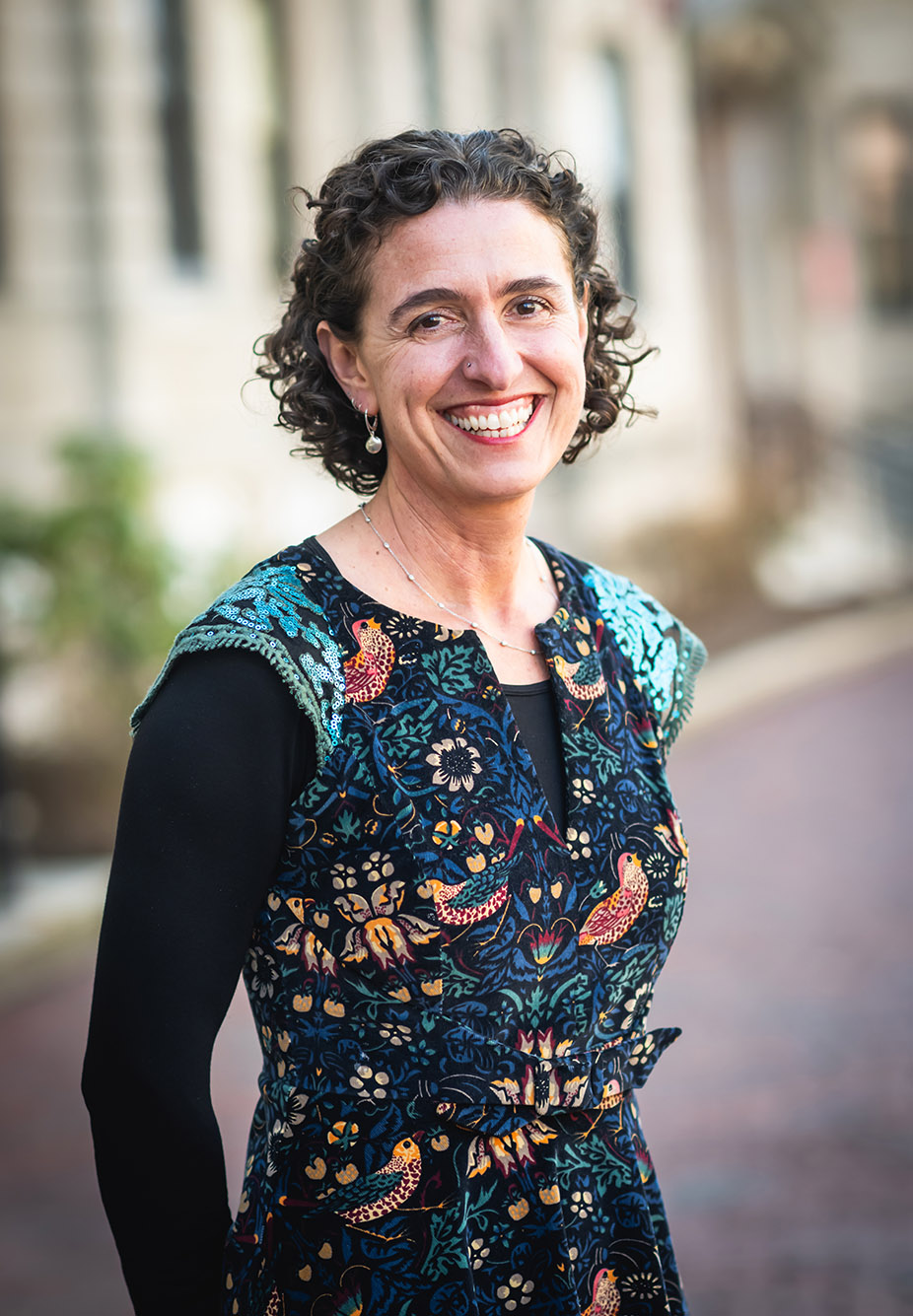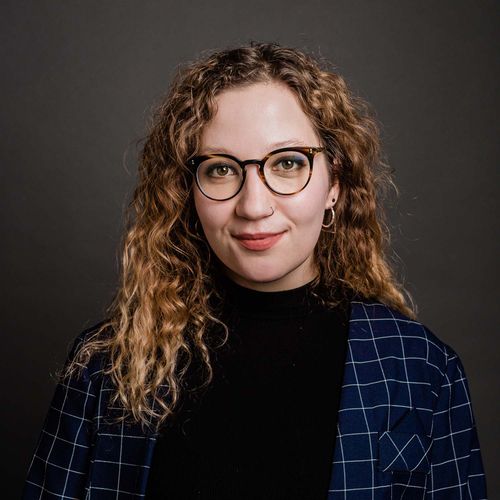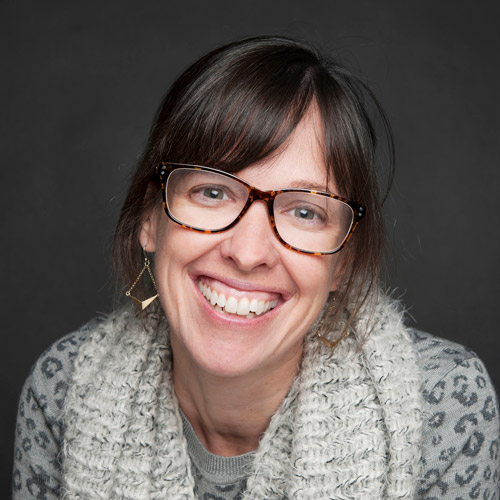CAS’ Joanna Davidson a 2023 Metcalf Award Winner
Anthropology professor and associate director of Kilachand Honors College cited for her innovative approach to grading

Metcalf Award winner Joanna Davidson’s teaching has been described by her students as “illuminating,” “transformative.”
CAS’ Joanna Davidson a 2023 Metcalf Award Winner
Anthropology professor and associate director of Kilachand Honors College cited for her innovative approach to grading
Joanna Davidson has always disliked grading.
To Davidson, an associate professor of anthropology at the College of Arts & Sciences, traditional grading essentially functions as a punishment-versus-reward system. A student’s motivation to do well in class often lies in their desire to avoid punishment (aka get a bad grade), not in their desire to actually learn and engage with course material.
That’s why Davidson, who’s also the associate director of Kilachand Honors College, led a charge to experiment with “un-grading” at Kilachand. Her research helped the college land on a grading system it calls “dialogic grading,” in which students ultimately assign themselves a grade based on guided assessments of their performance throughout a semester.
In one-on-one conferences with students, “I ask questions like, ‘What readings really stuck with you, and did they change your mind about anything?’ and ‘What was an epiphany you had this semester?’” Davidson explains. “It’s this really meta process where I learn so much about what they learn. A [traditional] grade just doesn’t do that justice.”
Davidson’s innovation—as well as her dedication to improving the classroom experience in general—has earned her one of this year’s Metcalf Awards for Excellence in Teaching.
“Joanna is not only a gifted, expert teacher in the classroom, but she also helps other faculty be better teachers,” says Carrie Preston, outgoing Kilachand director and professor of English and women’s, gender, and sexuality studies at CAS.
“The faculty teams she leads at Kilachand share and workshop their syllabi, codesign assignments, and continue to meet throughout the semester to share successes and failures. This model of faculty collaboration is deeply rewarding for faculty and students alike.”
A sociocultural anthropologist, Davidson has pursued ethnographic research in Guinea-Bissau for nearly 25 years. She is the author of Sacred Rice: An Ethnography of Identity, Environment, and Development in Rural West Africa (Oxford University Press, 2015) and most recently the coeditor of the anthology Opting Out: Women Messing with Marriage Around the World (Rutgers University Press, 2022).
She came to BU in 2011. Since then, she’s taught everything from introductory anthropology to graduate courses on ethnography and on writing proposals. At Kilachand, Davidson’s courses include the ethics of storytelling as well as a class on research methodologies and the process of inquiry.
Davidson also designed the framework for People in Process, a Kilachand senior seminar sequence that examines the work and life of an impactful person in academia or society in the fall. (Malcolm X, Rachel Carson, and Davidson’s pick, Zora Neale Hurston, have all been topics.) During the spring, the seminar then asks students to select a person who’s been impactful in their own lives and spend the semester digging into that person’s contributions to the world.
Parents, educators, researchers—“There are many ways to be impactful without necessarily being a household name,” Davidson says. “We teach these courses as counterparts as a way to think about what it means to have an impact on other people’s lives, and to create a meaningful life.
“We’re always telling our students things like, ‘go do great things’ and ‘be the best at whatever it is you do,’” she continues. “This sends them off with the idea that there’s no one obvious trajectory they need to follow; they just need to think about what’s actually meaningful to them.”
That’s the type of pedagogy that led students to nominate Davidson for the award.
“If I had to pick one class to define my undergraduate experience, [Davidson’s] class would be it,” a former student wrote in a testimonial to the awards committee. “It was a disorienting, enlightening class based on expertly moderated discourse…many of my most basic assumptions were challenged, my curiosity reinvigorated.”
No matter what course she’s teaching—or how it’s graded—Davidson hopes students “get as much as they possibly can milk” from her classroom. “I want students to be motivated by a love of learning and an intrinsic desire to push themselves to think more deeply and be more open ideologically,” she says.
“We need more people who do things not based on punishment or reward, but because of what they value the most. Those are the kinds of people I want to help put out in the world.”
A gift from the late Arthur G. B. Metcalf (Wheelock’35, Hon.’74), a BU Board of Trustees chair emeritus and former professor, funds the Metcalf Cup and Prize and the Metcalf Awards for Excellence in Teaching, created in 1973 as the University’s highest teaching honors. The Cup and Prize winner receives $10,000; the Metcalf Award winners receive $5,000. A University committee selects winners based on statements of nominees’ teaching philosophy, supporting letters from colleagues and students, and classroom observations of the nominees.
This year’s Metcalf Cup and Prize winner is Karin Hendricks, an associate professor of music education at the College of Fine Arts. The other Metcalf Award winner is Stephanie Byttebier, a senior lecturer in rhetoric at the College of General Studies. The Metcalf Cup and Prize and Awards for Excellence in Teaching will be presented at the University’s 150th Commencement on May 21.


Comments & Discussion
Boston University moderates comments to facilitate an informed, substantive, civil conversation. Abusive, profane, self-promotional, misleading, incoherent or off-topic comments will be rejected. Moderators are staffed during regular business hours (EST) and can only accept comments written in English. Statistics or facts must include a citation or a link to the citation.